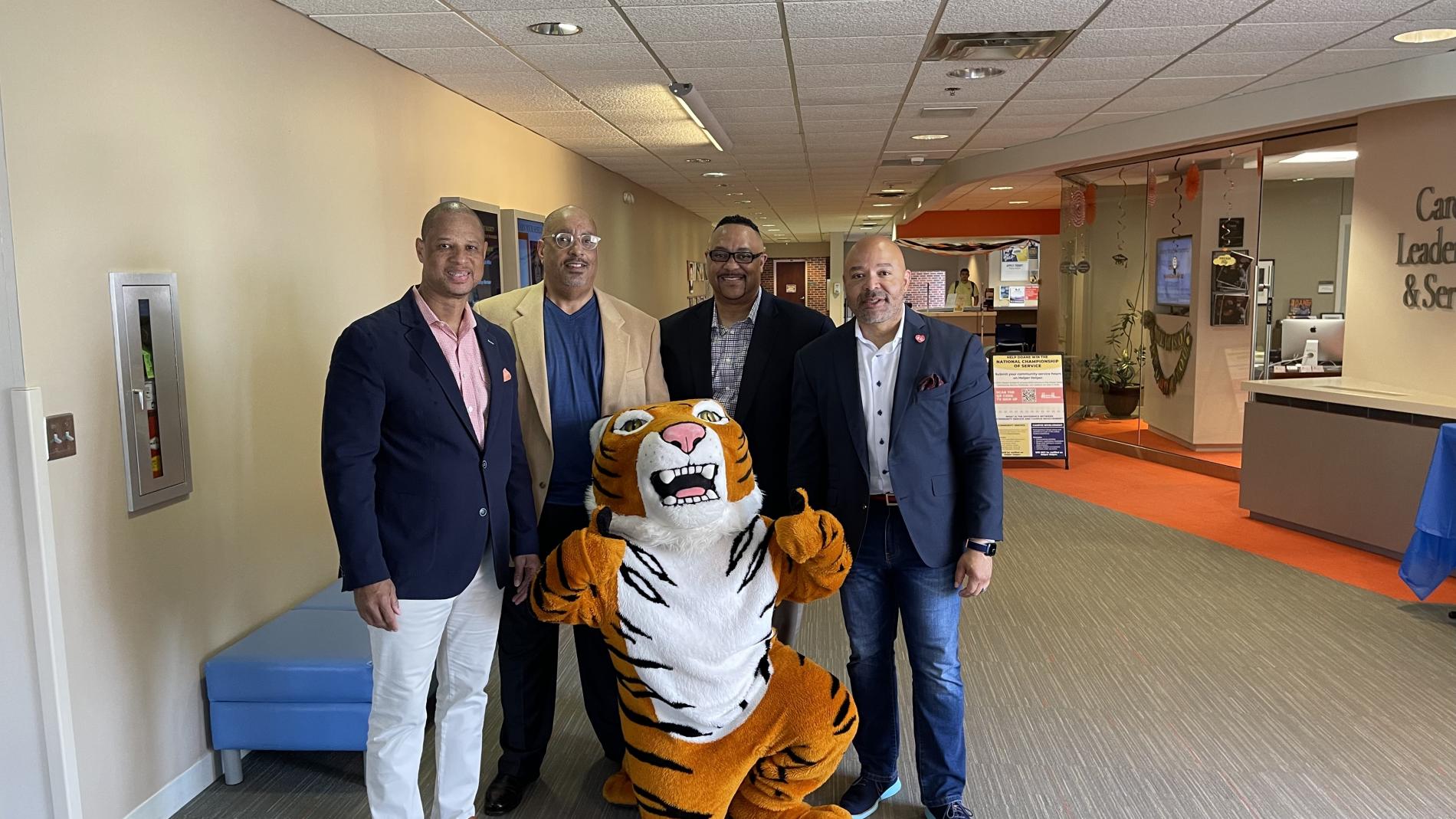
By Liz McCue
For many students, budgeting for college isn’t just a good habit to develop on the path to adulthood. It’s an incredibly careful act to make sure that the funds of each month can stretch to cover housing, food, phone bills, gas.
And if an emergency comes up, there might not be anything left to address it, particularly for minority students who are less likely to have a financial safety net from family. That’s why six alumni — André Davis ’89, Tony Tolliver ’88, Jerry Gamble ’88, Dexter Hoskins ’88, Steve McAlester ’88 and Jerall Moreland ’89 — created the NexTus Scholarship fund.
The name is a portmanteau, blending next, us and nexus.
“So think about what a nexus means. It means connection, it means relationship, it means joining,” Tolliver said. “And ‘us’ is in the middle of that. That means us as Black men, as Black students, as Doane alumni. We wanted to do something for people who look like us who had an experience like us that they weren’t anticipating.
For Tolliver, it was a broken tooth. The dental costs were high enough that, on his own, he would have to drop out of Doane to have it fixed.
Instead, Marty Fye ’83, then an admissions counselor and currently vice president for advancement, located some funds through the college to cover Tolliver’s dental work. When Davis’s car broke down, Crete residents gave him a tow into town, or said “pay when you can” for repairs. Coaches came together to ensure that Gamble could return home to South Carolina for “recruiting,” but really so he could be with family as his mother passed away.
For these six men, and countless other alumni, there have been many instances where the college and surrounding communities stepped up to support students. But a formal fund had never before been established, they learned from Fye, who remained friends with them over 30-plus years.

That changed in 2020 with the NexTus Scholarship fund, which has been funded entirely by Davis, Tolliver, Gamble, Hoskins, McAlester and Moreland. Currently, at least. With greater knowledge of the scholarship, they hope other alumni will contribute to reach their base goal of getting $25,000 in the fund, which makes it endowed.
They aren’t waiting, though — the NexTus scholarship has already been awarded to several students who faced unforeseen circumstances. The scholarship is awarded to minority students on Doane’s residential campus on an as-needed basis.
“For many kids of color that are coming to schools like this out of state, et cetera, we can’t rely on an account…there are no funds sitting anywhere you could pull money and go, ‘hey, you know, car broke down,’” Davis said.
Most of the six were first-generation college students, and most held multiple jobs throughout their time on campus. But if something came up beyond the $20 or so they had to get through each month — that was it.
And those challenges still present themselves to students today, particularly students of color and first-generation students. There are no college funds. There are no generational resources to pull from, either.
“If your family wasn’t able to assist you, I mean, what do you do? That can be very stressful,” Hoskins said. “It’s gratifying to us to be able to help out in that perspective.”
Donations can be made to the scholarship by calling Doane’s Office of Institutional Advancement at 402-826-8256 and asking for Fye or Julie Rasgorshek, executive director of the Doane Fund.

